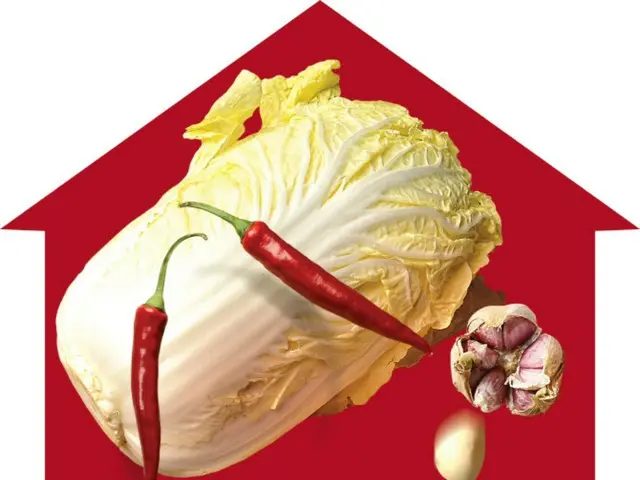This is because the prices of ingredients needed to make kimchi, such as ginger and Japanese onion, have been raised one after another. Because of this, some people are even giving up on making kimchi this year.
Kim, a housewife in her 60s who lives in Incheon, has virtually given up on her plans to make kimchi this year. Homes affected by recent price increases
This is because they heard the news that the prices of kimchi ingredients, including Chinese cabbage, have increased amid tight budgets. Kim said, ``I pickled some new kimchi and shared it with the whole family.
I've been making kimchi every year during this season, but it seems a little difficult this year.''She added, ``All my children are independent now, so this year I bought kimchi at the supermarket.''
I decided to eat it.'' Park, a housewife in her 50s living in Seoul, is rushing to prepare kimjang. Park said, ``I applied to pre-order Chinese cabbage for kimchi at a large supermarket.
``I heard that the price will go up further due to increases in logistics costs,'' he said, adding, ``I used to do kimjang around mid-November every year, but this year I think I'll have to move it up earlier.''
I felt anxious," he said. According to the price trends of the Agricultural Products Distribution Information (KAMIS) of the Korea Agricultural and Fisheries Food Distribution Corporation (aT), the average retail price of one cabbage as of the 17th was 6,587 won (approx.
723 yen), an 11% increase from last year's 5,934 won (approximately 656 yen). In some food stores, prices are approaching 8,000 won (approximately 885 yen) per share.
Some people in the food industry say they are more worried about the price of salt than the price of Chinese cabbage. The retail price for 5 kg of coarse salt is 13,227 won (approx.
1,460 yen), an 18% increase compared to last year's 11,202 won (approximately 1,240 yen). Demand soared due to the release of treated water from Japan's Fukushima nuclear power plant, while production decreased due to typhoons and a long rainy season.
Because of that. The prices of ingredients used in kimchi, such as chili powder, green onions, onions, and ginger, are also rising one after another. The retail price per kilogram of domestic chili powder is 35,824 won (approx.
60 yen), an increase of 13.1% compared to last year's 31,655 won (approximately 3,500 yen). The price of 1 kg of long onions is 4,001 won (approximately 442 yen), 23.5% compared to last year.
The price per kilo was 10,209 won (approximately 1,130 yen), an increase of 39.2% from last year. The price of 1 kg of ginger is 17,466 won (approximately 1,930 yen), more than double from last year.
The price has gone up. As a result, more and more consumers are giving up on making kimchi and turning to store-bought kimchi. In fact, GS Shop was sold on a TV mail order program from 2019 to September of this year.
An investigation into the sales volume of ``Jongke Bogi Kimchi'' revealed that the sales volume has been steadily increasing every year, except for last year when there was a Chinese cabbage price hike affair. From January to September 2019, before the COVID-19 virus outbreak
215,000 pieces of "Soke Pogi Kimchi" were sold by GS Shop on TV, but in the same period of 2020, when the spread of the COVID-19 virus began, the number was 239,000 pieces.
1% increase, and 3.6% increase to 248,000 units in 2021. Approximately 254,000 units have been sold between January and September of this year.
Kim, a housewife in her 50s who lives in Daejeon (Daejeon), said, ``Preparing everything from Chinese cabbage to various toppings takes a lot of money and time.
Because of this, I gave up on the kimjang plan early this year.''Recently, I often make and eat small amounts of each Chinese cabbage, or buy store-bought kimchi, so I don't have the kimjang plan like I used to.
I feel like the atmosphere of the season is gone." Gong, an office worker in his 40s who lives in Seoul, said, ``When you buy store-bought kimchi, the amount is small, and there are many types of kimchi, such as kimchi fried rice and kimchi jjigae.
"I can't use it for any kind of cooking," he said, adding, "It costs a lot to buy and eat kimchi, so I still haven't decided what to do with it this year."
2023/10/18 07:07 KST
Copyrights(C) Edaily wowkorea.jp 107

